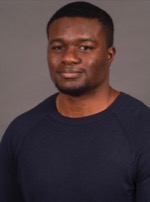
|
Nick Glenn graduated from the University of Missouri – Saint Louis with his B.A. in chemistry in 2018. He is currently a third year PhD candidate working with Professor Ryan Bailey. His research interests are focused on development of a droplet microfluidic, biphasic sensing platform for the detection of electrolytes and polyionic biomolecules. Furthermore, he is exploring the usage of this technology for multiplex sensing of electrolytes in biological matrices. Email: glennn@umich.edu |
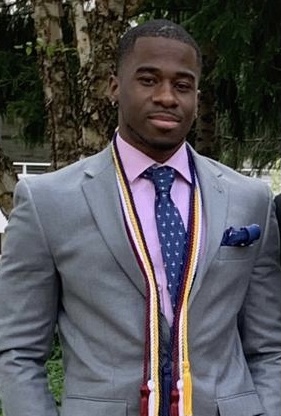
|
Nna-Emeka Onukwugha graduated from the University of Pittsburgh in Pennsylvania with his B.A. in chemical engineering in 2019. He is currently a second year PhD candidate working with Professor Sunitha Nagrath. His research interest is focused on developing a patient specific immunotherapy for cancer patients through immune system priming with tumor derived extracellular vesicles. He is interested in the microfluidic immunoassay for the isolation and protein characterization of these extracellular vesicles. Email: nonukwug@umich.edu |
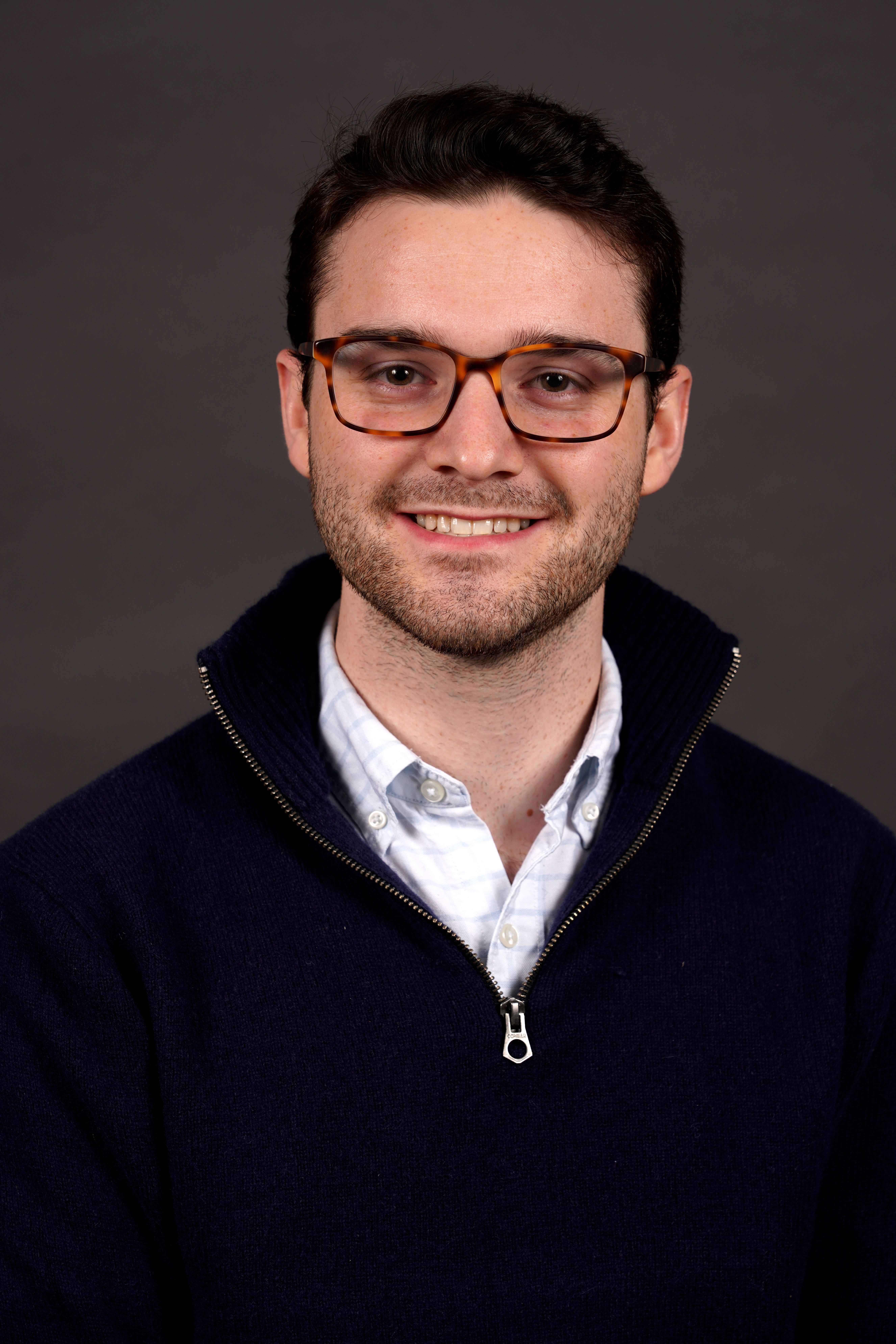
|
Emory Payne graduated from Middlebury College in Vermont with his B.A. in chemistry in 2018. He is currently a third year PhD candidate working with Professor Robert Kennedy. His research interest is in developing droplet microfluidic platforms for high-throughput screening. In particular, he is interested in the interrogation of droplet contents by mass spectrometry, laser induced fluorescence, and UV-Vis spectroscopy. Email: emoryp@umich.edu |
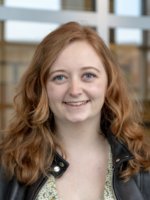
|
Sarah Ackenhusen graduated from the University of Illinois at Urbana-Champaign in 2018 with her B.S. in Chemistry with a minor in Mathematics. She is currently a second year Chemical Biology doctoral student working in the Alison Narayan lab. Her current work focuses on enzyme engineering for biocatalysis, in an effort to create panels of enzymes for use in difficult chemical transformations. Email: sackenhu@umich.edu |

|
Nadab Wubshet graduated from Washington University in St. Louis with his B.S. in mechanical engineering and mathematics with a minor in physics in 2018. He is currently a second year PhD student working at the Liu Lab. His research interest is in developing minimal synthetic cells and currently working on mechanosensitive actin network reconstitution inside cell-sized vesicles, and he uses microfluidic devices to mechanically characterize different actin networks. Email: nadab@umich.edu |
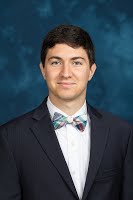
|
Nicolas Mesyngier recieved his B.S. in Engineering Science from the Pennsylvania State University in 2017. He is currently a PhD student in Mechanical Engineering at the University of Michigan working in Prof. Ryan Bailey's lab. He is also co-advised by Prof. Katsuo Kurabayashi. Nico is interested in developing and interfacing optical sensing platforms with droplet microfluidics for biomedical applications. Email: nmesyn@umich.edu |

|
Owen Puls came to the University of Michigan via a small liberal arts college in Minnesota, St. Olaf. He is now a Pysics PhD student in Prof. Qiong Yang's lab studying mitotic trigger waves in one and two dimensions using both computational and experimental methods. His research interests extend to numerous topics in complex systems, dominated by a principal focus on disorder and its effect on otherwise well-understood physcial phenomena. Email: owpuls@umich.edu |
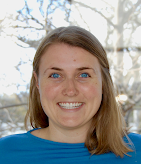
|
Emma Purcell graduated from the University of California, San Diego in 2015 with her B.S. in Chemical Engineering. She entered the University of Michigan in 2016 to pursue her PhD under the co-advisement of Prof. Sunitha Nagrath and Prof. Heather Mayes. Her work focuses on using microfluidic devices to determine the diagnostic and treatment monitoring potential of circulating biomarkers in non-small cell lung cancer patients. Email: eapurcel@umich.edu |
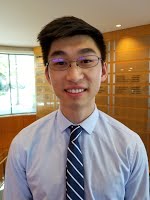
|
Benjamin Yang graduated from the University of California, San Diego in 2017 with his B.S. in Bioengineering: Biotechnology and is now a PhD candidate in Prof. Carlos Aguilar's lab pursuing a dual degree in Biomedical Engineering and Scientific Computing. His research focuses on applying single-cell sequencing methods to uncover the mechanisms by which cellular interactions effect changes in cellular plasticity. Email: benyang@umich.edu |
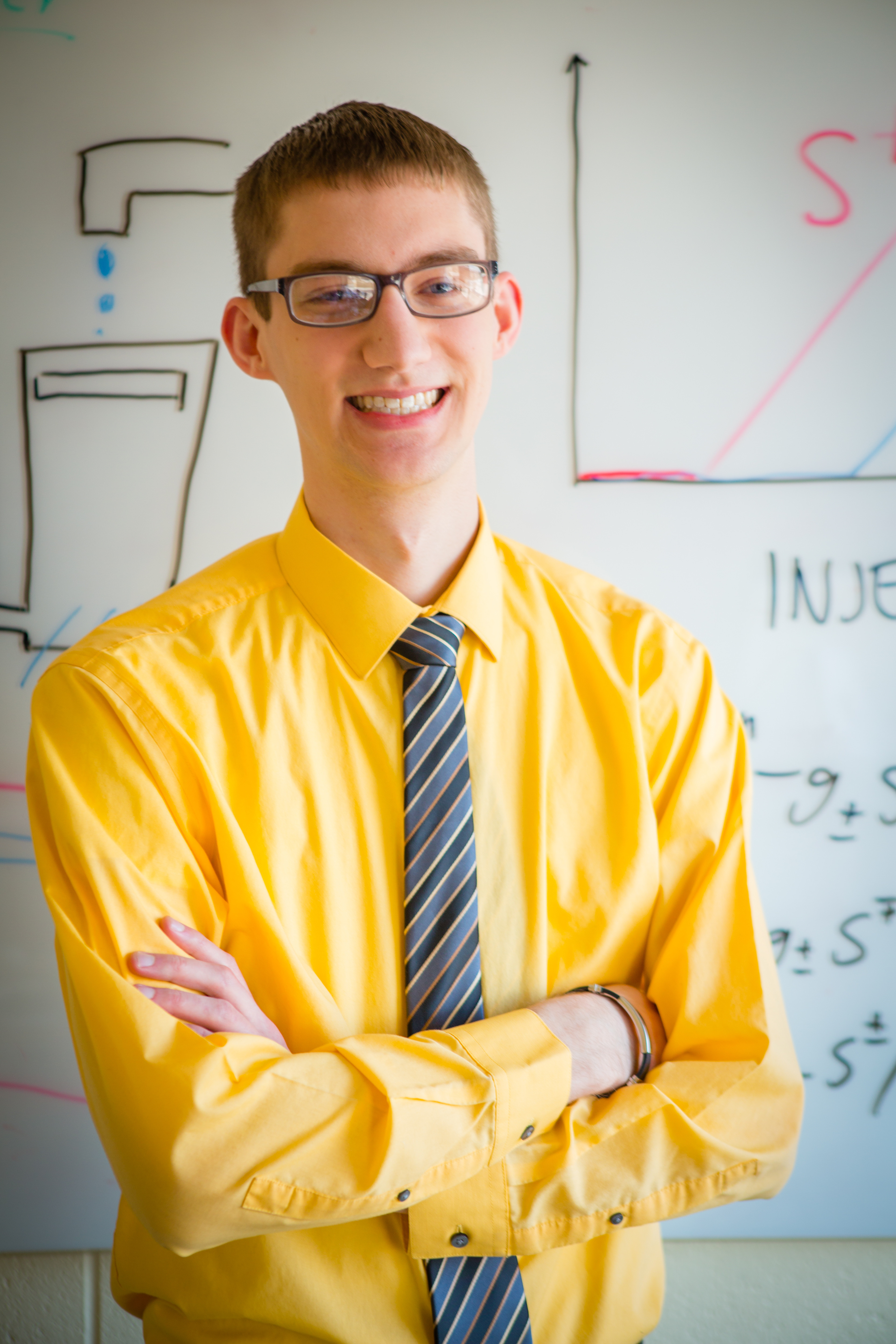
|
Nigel Michki recieved his B.S. in Computational Physics from the University of Buffalo (SUNY) in 2016 before joining the Biophysics PhD program at the University of Michigan later that year. In the lab of Dawen Cai, Nigel's research interests revolve around the development and application of single-cell RNAseq technologies to study pressing questions related to neurodevelopment in the fruit fly; specifically how different cell types are specified during neurogenesis. Email: nigelmic@umich.edu |
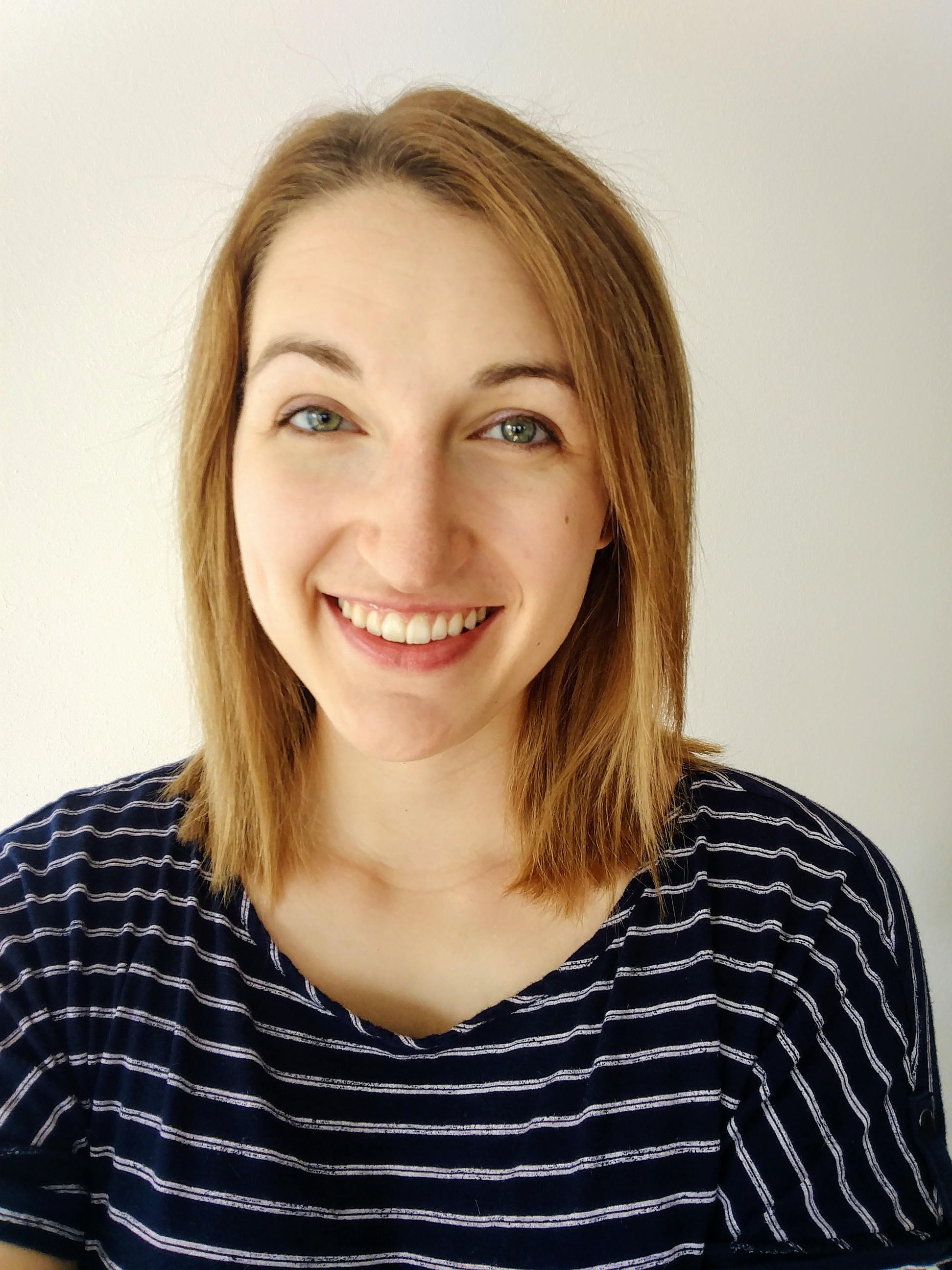
|
Alyse Krausz graduated from The Ohio State University in 2016 with her B.S. in Biomedical Engineering. She is currently pursuing her PhD in Biomedical Engineering at the University of Michigan in the lab of Professor Mark Burns. Alyse's research focuses on the development of a 3D printed microfluidic platform for quantitative urinalysis at the point-of-care. Email: alysekr@umich.edu |
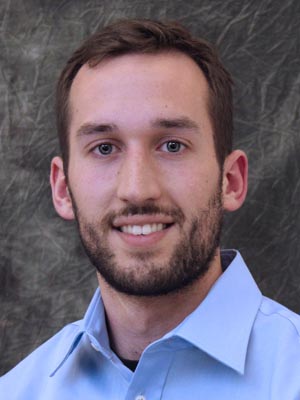
|
Eric Hobson received his B.S. in Bioengineering from Oregon State University in 2014. He is now pursuing his PhD in Biomedical Engineering from the University of Michigan in Dr. Kelly Arnold�s lab. Eric�s current research focuses on the development of high-throughput assays to explore the role of immune signaling during epithelial repair. Email: hobsone@umich.edu |
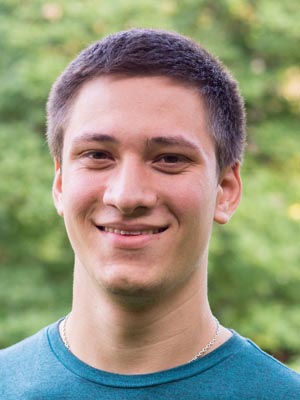
|
Daniel Holland-Moritz received his B.S. in chemistry from Emory University in 2015. He is pursuing his PhD in chemistry in the lab of Dr. Robert Kennedy at the University of Michigan, where he is working on developing a droplet-microfluidics based platform for high throughput enzyme evolution coupled with label-free mass spectrometry analysis. Email: dholla@umich.edu |
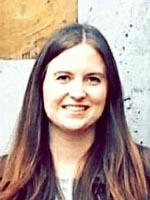
|
Sarah Owen graduated from the University of Washington in 2015 with her B.S. in chemical engineering and is currently pursuing her PhD in chemical engineering at UM. Her work in Dr. Nagrath�s lab focuses on utilizing microfluidics to isolate circulating tumor cells (CTCs) for single cell analysis. By working closely with clinicians in the UM Comprehensive Cancer Center, she will be able to follow patients throughout treatment, and shed light on how CTCs temporally change throughout treatment. Email: snowen@umich.edu |

|
Phillip Spinosa Phillip Spinosa received his B.S in Chemical Engineering from Clarkson University in Potsdam, NY. He is pursuing his PhD in Chemical Engineering under the supervision of Dr. Jennifer Linderman. His research is at the interface of computational modeling, cancer biology, and microfluidic experiments which he uses to understand chemokine gradients and cancer cell migration with the broader goal of inhibiting cancer metastasis. Email: spinospc@umich.edu |
|
|
Jin Woo Lee received his B.S. in Mechanical Engineering at the Binghamton University in 2014. He is now pursuing his PhD in Mechanical Engineering at the University of Michigan in Dr. Allen Liu's lab. His research focuses on developing artificial mechanosensitive cells using droplet microfluidic technologies. Email: jwoolee@umich.edu |
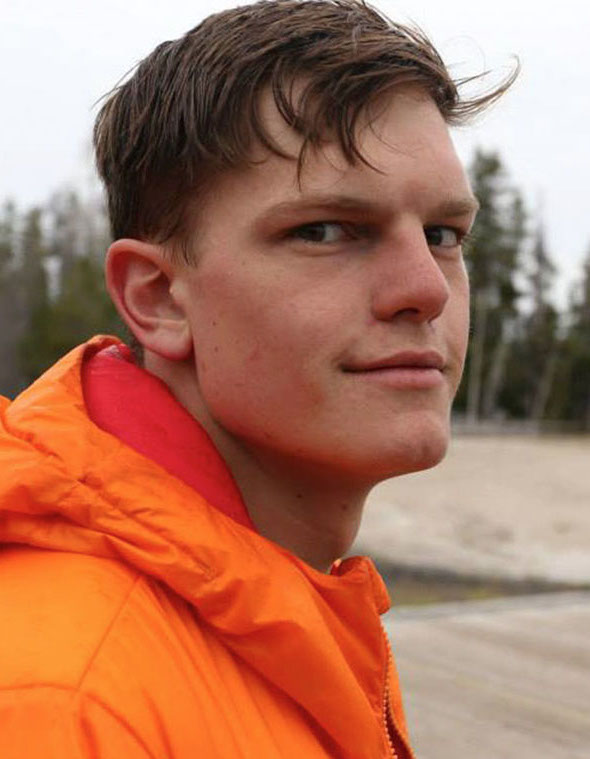
|
Stephen Robinson received his B.S. from the University of Maryland in 2012 and worked the following two years in a startup focused on developing novel instrumentation for pulmonary drug delivery. He is now applying his instrumentation experience in the Takayama Lab with microcirculatory systems for organ-on-a-chip and human-on-a-chip technologies. His research with the MBSTP will include development of a microcirculatory pump with an integrated microscope and bluetooth connectivity in order to take an internet-of-things approach to microfluidics. Email: strob@umich.edu |
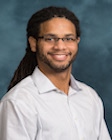
|
Stephen Ferguson received his B.S. in Biochemistry at the College of Charleston in Charleston, SC in 2012. After graduation he began working at the Centers for Disease Control and Prevention in Atlanta, GA under the direction of Hubert Vesper. Stephen is now pursuing his Ph.D. in Chemistry under the direction of Mark Meyerhoff at the University of Michigan where his interests include the use of electrochemical sensors to quantitatively detect large biomolecules used in clinical procedures. In addition, Stephen is exploring the use of microfluidic platforms that would facilitate automated, high-throughput testing of clinically relevant samples using electrochemical techniques. Email: safergus@umich.edu |
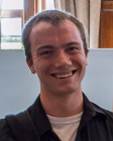
|
Brian Berger received his B.S. in Chemical Engineering and his M.S. in Materials Science and Engineering from the University of Dayton in 2013. Despite ostracizing himself from his family � most of whom are fans of the Ohio State Buckeyes � Brian continued onto the University of Michigan immediately thereafter, and is pursuing a PhD in Macromolecular Science and Engineering. Having joined the Kurabayashi Lab in September 2013, Brian�s current research interest is in the development of novel magneto-optical biosensor methodologies for sensitive and robust biomolecule detection. Email: bergerbl@umich.edu |
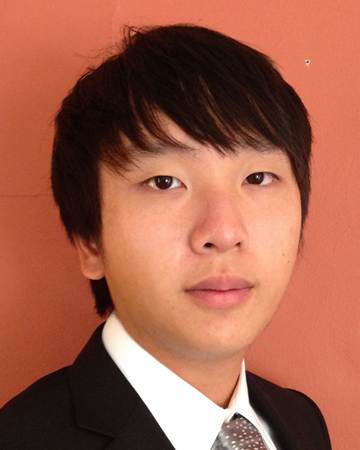
|
Eric Lin is pursuing his PhD in Chemical Engineering at the University of Michigan (UM). He is a 2014 MBSTP fellow. His research focuses on the separation of Circulating Tumor Cells (CTCs) using label-free and high-throughput microfluidic devices. He graduated with a B.S. in Chemical Engineering from National Taiwan University (NTU). Email: gogodidi@umich.edu |

|
Johanna Heureaux is pursuing her PhD in mechanical engineering at the University of Michigan. As a member of the Laboratory of Cellular and Molecular Systems, her research interests include the study and bottom-up assembly of biological and artificial components into novel synthetic systems. She is part of a subgroup that is working on building an artificial platelet that will elicit the natural clotting casade in vivo. Johanna earned a BS in Physics from New York University and BE in Mechanical Engineering from Stevens Institute of Technology. Email: heureaux@umich.edu |
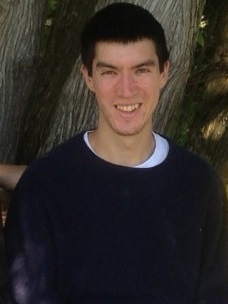
|
Brian Syverud is pursuing his PhD in Biomedical Engineering at the University of Michigan. His research focuses on tissue engineering of skeletal muscle for the repair of traumatic injury. After graduating with a B.S. in mechanical engineering from the Massachusetts Institute of Technology, he worked in research and development for several years at Digilab, Inc. and the Boston Scientific Corporation. Email: bsyverud@umich.edu |
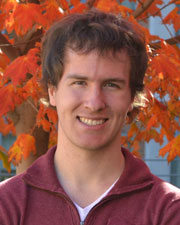
|
Jacob Jordahl is pursuing his PhD in Chemical Engineering at the University of Michigan. His research in the Lahann Lab focuses on the fabrication of scaffolds for tissue engineering via electrohydrodynamic co-jetting. Currently his scaffolds are being used for creating robust 3D cell constructs which can be used to mimic any tissue microenvironment. Jacob earned a BSE in Chemical Engineering in 2010 from the University of Minnesota Twin Cities. After graduation he worked at Bepex International as a Lab Engineer in their pilot plant before coming to the University of Michigan in the fall of 2011. Email: jjordahl@umich.edu |
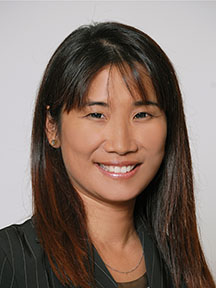
|
Mayurachat Ning Gulari is pursuing her PhD in Macromolecular Science and Engineering at the University of Michigan (UM), where her research focuses on Development of Point of Care white blood cell counting system for HIV/AIDS. She is the recipient of the 2012-2013 MBSTP Fellowship. She received the B.S. degree in Chemical Technology and the M.S. degree in Polymer Science and Engineering from the Petroleum and Petrochemical College, Chulalongkorn University, Bangkok, Thailand. Prior to starting graduate school, she worked as a planning engineer in Star Petroleum Refining Company, a research engineer in Center for Display Technology and Manufacturing and then a senior research engineer in Prof. Kensall Wise�s research center, NSF Engineering Research Center for Wireless Integrated MicroSystems (WIMS ERC) at UM. Her research included designing and fabricating implantable micromachined probes for drug delivery, neural signal recording, and stimulation. In 2008, she joined in Neuronexus Technology to develop the next-generation MRI compatible deep brain stimulation electrodes for treatment of central nervous system disorders and transferred neural probe product from development facility to high volume foundry. Email: toning@umich.edu |

|
Erik Guetschow is pursuing his PhD in chemistry at the University of Michigan. His research interests are focused on interfacing segmented flows to microchip electrophoresis for high-throughput screening applications. He received a B.A. in chemistry from Kalamazoo College. Email: edguetsc@umich.edu |

|
Ryan Oliver is a member of the Mechanosynthesis Research group at University of Michigan. He is studying the synthesis and self assembly of micro/nano particles into ordered structures that are responsive to a number of stimuli. He received his masters in Industrial and Manufacturing Engineering from University of Texas at Arlington and enjoys organizing student discussions and talks to catalyze new ideas and community. Email: croliver@gmail.com |
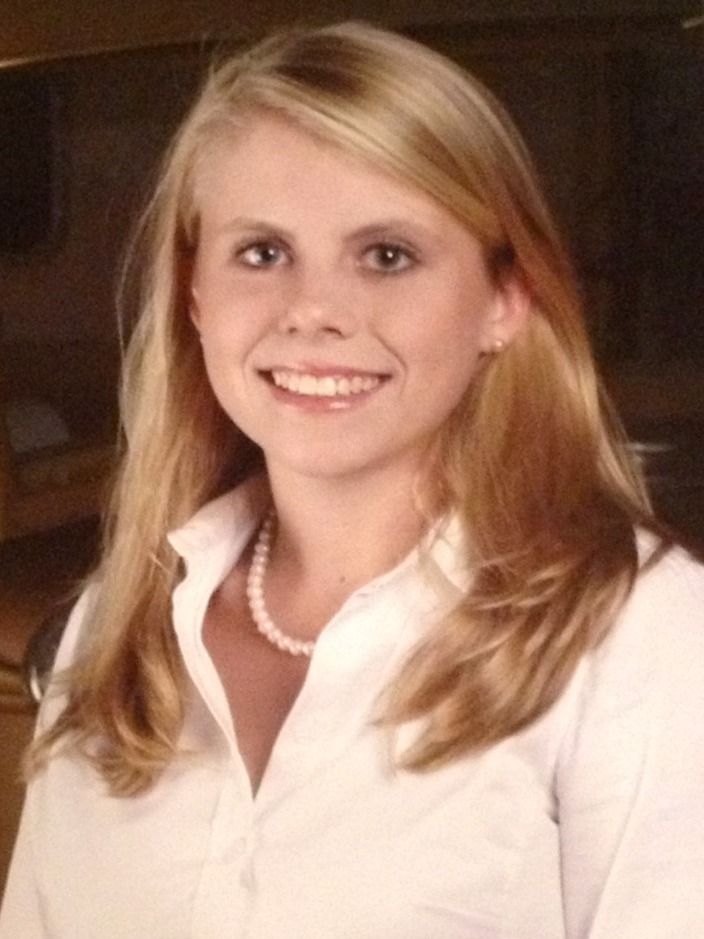
|
Jenna Campbell is pursuing her Ph.D. in Mechanical Engineering along with a Graduate Certificate in Science, Technology, and Public Policy through the Ford School. Jenna was a 2011-2013 MBSTP fellow. As a part of the Nanomechanics Lab, Jenna's research interests focus on incorporating biomolecular motors into microfluidic platforms to act as novel transport mechanisms. She is developing an in vitro medical diagnostic device that is driven by biomolecular motors. Jenna received her B.S. in Physics at the Georgia Institute of Technology. Email: campbell.jennam@gmail.com |
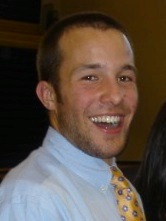
|
Joe Labuz is a PhD candidate in biomedical engineering. Working in the Takayama group, his research interests include biopatterning using aqueous two-phase systems, human on a chip scaling, in vitro models for adipogenesis, and cellular biomechanics. A graduate of the University of Wisconsin, Joe is also pursuing a certificate in Science Technology and Public Policy and enjoys sports, reading, and travel in his free time. Email: labuz@umich.edu |
